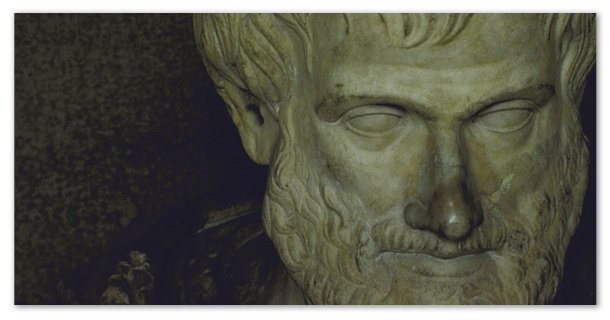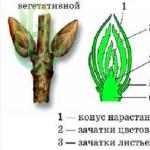Aristotle was born on the coast of the Aegean Sea, in Stagira. The year of his birth is between 384-332 BC. The future philosopher and encyclopedist received a good education, because his father and mother served as doctors to the king, grandfather of Alexander the Great.
At the age of 17, a promising young man, possessing encyclopedic knowledge, entered the Academy himself, which was located in Athens. He stayed there for 20 years, until the death of his teacher, whom he highly appreciated and at the same time allowed himself to enter into disputes with him because of different views on significant things and ideas.
After leaving the Greek capital, Aristotle became a personal mentor and moved to Pella for 4 years. The relationship between the teacher and the student developed quite warmly, until the moment when Macedonian ascended the throne with inflated ambitions - to conquer the whole world. The great naturalist did not approve of this.
Aristotle opened his own philosophical school in Athens - Lyceum, which was successful, but after the death of Macedonsky, an uprising began: the views of the scientist were not understood, he was called a blasphemer and an atheist. The place of death of Aristotle, many of whose ideas are still alive, is called the island of Euboea.
Great naturalist
The meaning of the word "naturalist"
The word naturalist consists of two derivatives, so literally this concept can be taken as "testing nature." Therefore, a naturalist is called scientist who studies the laws of nature and its phenomena, and natural science is the science of nature.
What did Aristotle study and describe?
Aristotle loved the world in which he lived, longed to know it, to master the essence of all things, penetrate into the deep meaning of objects and phenomena and pass on their knowledge to subsequent generations, preferring to report accurate facts. One of the first he founded science in its broadest sense: for the first time created a system of nature - physics, defining its basic concept - movement. In his work, there was nothing more important than the study of living beings, and, therefore, biology: he revealed the essence of animal anatomy, described the mechanism of movement tetrapods, studied fish and mollusks.
Achievements and discoveries
Aristotle made a huge contribution to ancient natural science - proposed his own system of the world. So, he believed that in the center there is a motionless Earth, around which the celestial spheres with fixed planets and stars move. At the same time, the ninth sphere is a kind of engine of the Universe. Moreover, the greatest sage of antiquity predicted Darwin's doctrine of natural selection, he demonstrated a deep understanding of geology, in particular the origin of fossils in Asia Minor. Metaphysics was embodied in many works of the ancient Greek - "On the sky", "Meteorology", "On the emergence and destruction" and others. Science as a whole was for Aristotle the highest level of knowledge, because the scientist created the so-called "ladder of knowledge".
Contribution to philosophy
The fundamental place in the activity of the researcher was occupied by philosophy, which he divided into three types - theoretical, practical and poetic. In his writings on metaphysics, Aristotle develops the doctrine of the causes of all things, defining four basic ones: matter, form, producing cause and purpose.
One of the first scientists revealed the laws of logic and classified the properties of being on certain grounds, philosophical categories. The basis was the conviction of the scientist in the materiality of the world. His theory is based on the fact that the essence is in the things themselves. Aristotle gave his own interpretation of Platonic philosophy and the exact definition of being, and also thoroughly studied the problems of matter, clearly defined its essence.
Views on politics
Aristotle was involved in the development of the main areas of knowledge of the time - and politics is no exception. He emphasized the importance of observation and experience and was a supporter of moderate democracy, understanding justice as a common good. It is justice, according to the ancient Greek, that should become the main political goal.

He was convinced that the political structure should have three branches: judicial, administrative and legislative. Aristotle's forms of government are monarchy, aristocracy and polity (republic). Moreover, he calls only the latter the right one, because it combines the best aspects of oligarchy and democracy. The scientist also spoke about the problem of slavery, drawing attention to the fact that all Hellenes should be slave owners, a kind of masters of the world, and other peoples should be their faithful servants.
Ethics and the doctrine of the soul
It is impossible to underestimate the contribution of Aristotle to psychological science, because his doctrine of the soul is the center of all worldviews. According to the sage, the soul is connected on the one hand - with the material component, and on the other - with the spiritual, i.e. with God. It is only a natural body. In other words, all living things have a soul, which, according to the scientist, are only three types: plant, animal and human (reasonable). However, the ancient Greek philosopher categorically refuted the idea of the transmigration of souls, considering the soul, though not a body, but its inseparable part, and assuring that the soul is not indifferent in whose shell it resides.
Aristotle's ethics is, first of all, the "correct norm" of human behavior. Moreover, the norm has no theoretical basis, but is determined by the characteristics of society. The central tenet of his ethics is reasonable behavior and moderation. The scientist was convinced that only through thinking a person makes his choice, and creativity and actions are not the same thing.
The Significance of Aristotle's Works
Aristotle's views were spread by the Arabs throughout medieval Europe and were only called into question during the technical revolution of the mid-16th century. All lectures of the scientist were collected in books - 150 volumes, a tenth of which has survived to this day. These are biological treatises, philosophical works, works on art.
If this message was useful to you, I would be glad to see you




